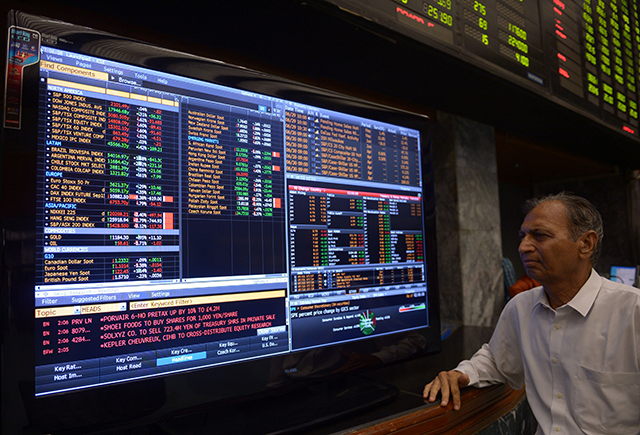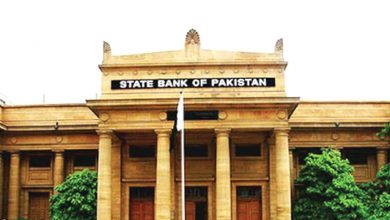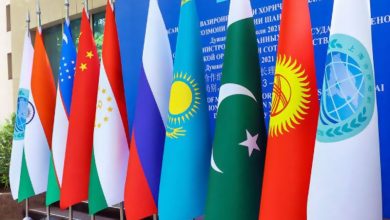IMF deal boosts capital markets

Pakistan’s capital markets are poised to celebrate an unexpected early win with the staff-level agreement on a $7 billion extended fund facility (EFF) with the International Monetary Fund (IMF). This 37-month agreement is expected to propel the stock market beyond the recent record high of over 81,000 points on Monday, while the rupee is anticipated to stabilise at 278/$ in the short to medium term of FY25.
The Pakistan-IMF staff-level agreement, pending approval from the IMF Executive Board, is expected to unlock additional funding from other multilateral and bilateral creditors, including the World Bank and Saudi Arabia. This would also attract foreign investment (hot money) into local sovereign debt instruments (T-bills) and the equity market, boosting foreign exchange reserves.
Speaking to The Express Tribune, Tahir Abbas, Head of Research at Arif Habib Limited, said that the outlook for the Pakistan Stock Exchange (PSX) has remained promising, with an expected immediate increase of 1-1.5% (800-1,200 points) on Monday in reaction to the agreement. The benchmark KSE 100 index is anticipated to surpass the recent intra-day all-time high of 81,087 points on Monday. He projects a full-year return of 38-40% for FY25, with the index rising to over 110,000 points by the end of June 2025.
Abbas added that the Pakistani Rupee (PKR) is expected to remain stable at Rs278/$ in the short to midterm (three to four months) due to positive sentiment from the new programme.
Tresmark, a treasury firm, stated in its weekly commentary that the rupee is poised for further consolidation with the early IMF staff-level agreement. Expectations of increased hot money, additional multilateral inflows, and higher export proceeds support these projections. The equity markets, already near record highs, are likely to receive an additional boost. However, the rupee is not expected to make substantial gains, staying around the 278/$ level.
To recall, the rupee gained 10.85%, or slightly over Rs30, in six-and-a-half months to Rs277.03/$ in late March 2024, compared to a record low closing of Rs307.10/$ in the first week of September 2023. It then nominally depreciated to Rs278-278.63/$ and has remained stable around these levels to date. Earlier, currency markets expected the rupee to resume devaluation from July 2024 due to a likely gradual increase in the import of goods and services and repayment of foreign debt worth around $24 billion in FY25.
The staff-level agreement has alleviated immediate devaluation pressure, extending support for the rupee’s stability phase until October-December 2024.
The agreement suggests that Pakistan will increase its tax-to-GDP ratio by 1.5 percentage points in FY25 and 3 percentage points over the EFF’s 37-month duration. Additionally, the government is advised to avoid unnecessary power generation capacity, adjust energy prices, improve state-owned entities (SOEs), strengthen monetary and fiscal policies, scale up social spending through Benazir Income Support Programme (BISP), and ramp up economic activities and growth.
The stringent programme, which includes imposing taxes on agriculture, real estate, wholesale, and retail sectors, and continuously adjusting power and gas prices to cut subsidies and improve fiscal operations, may hinder the economy from reaching its full potential. Pakistan’s economic growth is expected to remain moderate at 3-3.5% in FY25, with inflation expectations revised up to 13-16% in the short run due to surges in milk and energy prices.
Abbas noted that the import of goods (raw material) and services would remain low at around $4.5-5 billion per month for several months, as the government continues to control overseas purchases due to low foreign exchange reserves ($9.40 billion), which provide less than two months of import cover. Economic activities are expected to gradually improve after a few months of the IMF’s first tranche and additional inflows from other multilateral and bilateral creditors.
Pakistan has achieved a breakthrough by signing a new 37-month EFF with the IMF, amounting to $7 billion (SDR 5.3 billion). This significant achievement follows stabilisation measures taken by the government and the successful conclusion of the $3 billion Standby Arrangement (SBA) in April 2024. The new EFF aims to support macroeconomic stability achieved last year by strengthening public finances, reducing inflation, building external buffers, and removing economic distortions.
Regarding sectoral impacts at the Pakistan Stock Exchange (PSX), Abbas stated that energy, a top priority for the IMF, would benefit oil and gas exploration firms (E&P), oil marketing companies (OGMCs), and the power sector. Sectors with low utilisation, such as cement, autos, steel, and pharma, are expected to see improved utilisation and profitability levels amid low economic growth.




